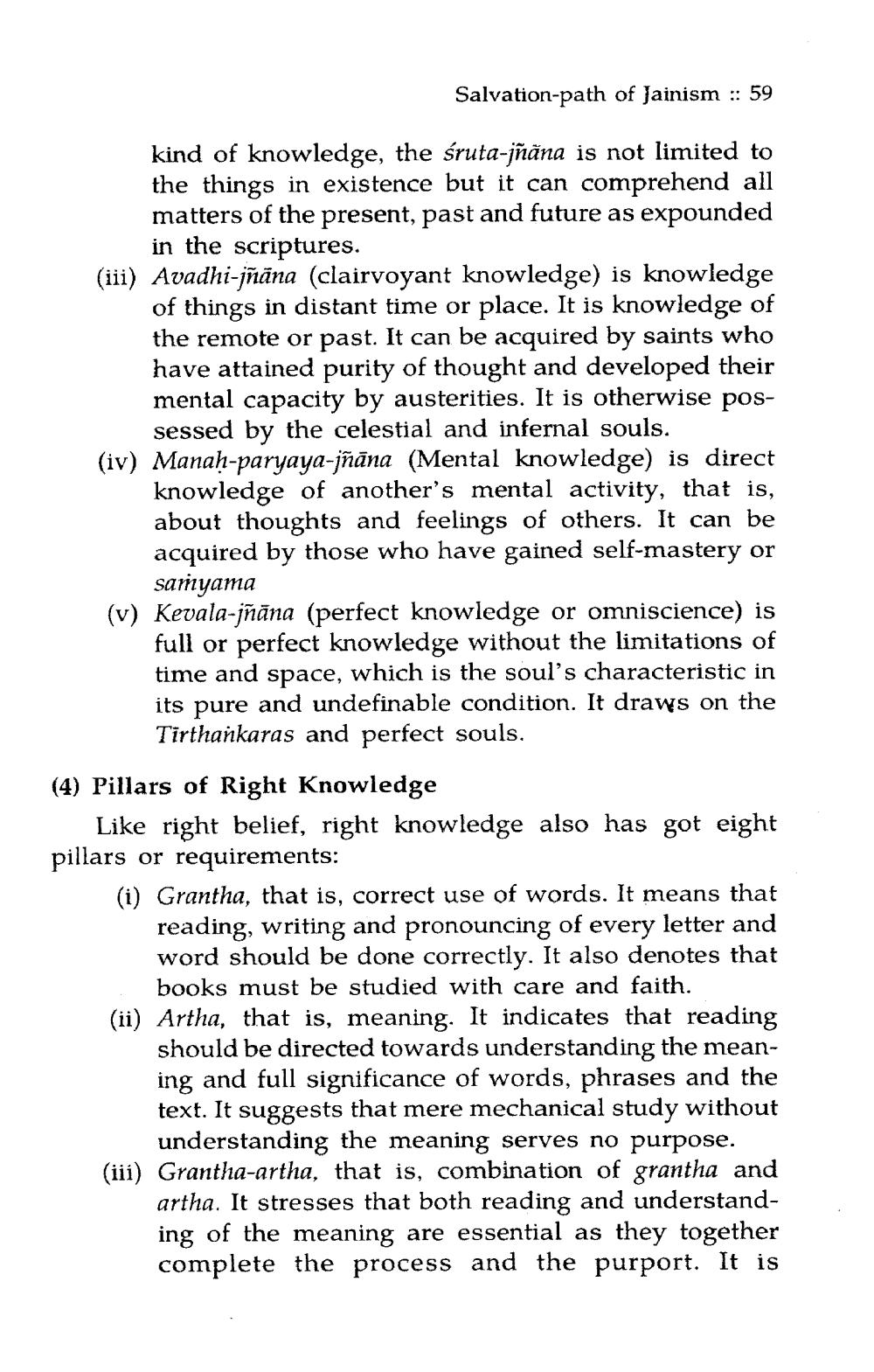________________
Salvation-path of Jainism :: 59
kind of knowledge, the śruta-jñāna is not limited to the things in existence but it can comprehend all matters of the present, past and future as expounded
in the scriptures. (iii) Avadhi-jñāna (clairvoyant knowledge) is knowledge
of things in distant time or place. It is knowledge of the remote or past. It can be acquired by saints who have attained purity of thought and developed their mental capacity by austerities. It is otherwise pos
sessed by the celestial and infernal souls. (iv) Manaḥ-paryaya-jñāna (Mental knowledge) is direct
knowledge of another's mental activity, that is, about thoughts and feelings of others. It can be acquired by those who have gained self-mastery or
samyama (v) Kevala-jñāna (perfect knowledge or omniscience) is
full or perfect knowledge without the limitations of time and space, which is the soul's characteristic in its pure and undefinable condition. It draws on the Tirthařkaras and perfect souls.
(4) Pillars of Right Knowledge
Like right belief, right knowledge also has got eight pillars or requirements:
(i) Grantha, that is, correct use of words. It means that
reading, writing and pronouncing of every letter and word should be done correctly. It also denotes that
books must be studied with care and faith. (ii) Artha, that is, meaning. It indicates that reading
should be directed towards understanding the meaning and full significance of words, phrases and the text. It suggests that mere mechanical study without
understanding the meaning serves no purpose. (iii) Grantha-artha, that is, combination of grantha and
artha. It stresses that both reading and understanding of the meaning are essential as they together complete the process and the purport. It is




